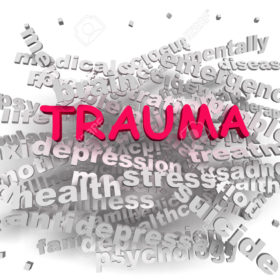 These are turbulent times, and the past few weeks have been unrelenting in their intensity. From political unrest and natural disasters to the senseless massacre in Las Vegas, we’ve seen how unpredictable life can be. These are turbulent times, and the past few weeks have been unrelenting in their intensity. From political unrest and natural disasters to the senseless massacre in Las Vegas, we’ve seen how unpredictable life can be.
At any time and any place – a local elementary school, political event, concert, sports competition, house of worship – communities have been at risk. Despite rekindled feelings of vulnerability, we must defend against fear and anxiety. Grief can make way for greater awareness and healing. And this process begins with family. As our children become immersed in the world around them and bombarded by graphic 24/7 news reports, it’s up to us to protect them. Children don’t have to personally experience abuse or trauma to feel worried and stressed. Secondhand exposure to violence is alarming. With easy access to social media and smart phones, teens today are in constant contact with peers who share information that may not be accurate. And when your adult conversations focus on tragedy, young kids are often listening more closely than you think. How can we help our family feel safe and secure? Supervising the flow of information, processing their feelings and reframing ideas can prevent your kids from falling prey to emotional overload: · Address troubling news early on and encourage them to ask questions. · Explain that being scared, angry or sad is a normal reaction. · Evaluate your experience so what you convey is thought out, not raw emotion. · Urge them to open up as you listen closely to their concerns. · Be direct and honest, sharing only as much as they can handle at the time. · Verify what their friends say so you can clarify any distortions. · Be reassuring that you will do everything you can to keep them safe. Around the clock media coverage with images of chaos and despair can make us feel as if the whole country is having a stress reaction. According to the National Institute of Mental Health, anxiety disorders are the most common type of mental illness, affecting 18% of the population every year – that’s 40 million American adults. And more than 25% of children in the U.S. will meet the criteria for an anxiety disorder during their teenage years. What helps us heal and how do we move forward? The first and greatest gift is often the courage of first responders and the spirit of people who rally in support by donating blood, rides, food and shelter. This strengthens our faith in humankind. Our kids take their cues from us. Like in any tragedy, sharing feelings with family and friends or in community provides understanding and eases the pain. Pulling together can help us cope. And giving back is often more than a needed distraction – it offers a source of comfort and the beginning of resilience. How will you be a catalyst for change? There are many options: donate money or your time to a hurricane, earthquake or fire relief program; sign petitions, join marches and do volunteer work to promote greater gun control and mental health research. Let’s make this a teachable moment for our families as we honor those who are suffering by taking action ourselves.
|
-

-

latest news
- RT @SandwichBoomers: Check out my latest articles: https://t.co/TcqVJBrA1R
- Check out my latest articles: https://t.co/8YO6LEzkls
- Why a 5-year plan can be more limiting than helpful for young women - https://t.co/1ogKMOKPro #GoogleAlerts
-


Search our site








